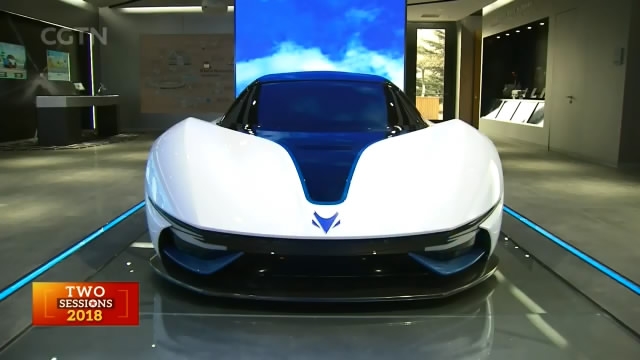
20:52, 10-Mar-2018
China's Political Season: Accelerating construction of innovative country

Innovation in technology and science has been playing a vital role in improving the quality of life in China. It has helped overcome poverty and modernize public healthcare. Our reporter Liu Yang was at a press conference held by the Ministry of Science and Technology on Saturday, and brings you more.
China has become a major technology and innovation powerhouse over the past five years. Minister Wan Gang outlined China's key achievements - Dark Matter Particle Explorer satellite "Wukong", the 500-meter Aperture Spherical Telescope, quantum entanglement research, and the successful cloning of two monkeys. Meanwhile, major projects in telecommunications, new medicine, high-speed railways, renewable resources, and industries such as new-energy vehicles and artificial intelligence (AI), have led to changes in citizens' daily lives.
WAN GANG, MINISTER MINISTRY OF SCIENCE AND TECHNOLOGY "Since the Eighteenth congress, the party's Central Committee with Xi Jinping as the core put scientific and technological innovation at the centre of party and national development, and vigorously implemented the strategy of innovation-driven development. This has put us on a new journey to construct a country with much stronger technological power. The digital economy, sharing economy, and other new forms, are leading world trends."
Entrepreneurship and innovation policies created two billion more jobs over the five years. China's pushing mass entrepreneurship and innovation, also known as "shuangchuang", has seen the number of new companies grow by 21.6 million since 2012.
Since 2014 when China introduced the polices, over 4,200 new incubator companies have been created. They serve over 120-thousand start-up firms and have raised over 5.5 billion yuan, or roughly 870 million US dollars. Artificial Intelligence was also a hot topic at the conference.
WAN GANG, MINISTER MINISTRY OF SCIENCE AND TECHNOLOGY "The country will work on speeding up the process of transforming AI technologies into industrial development and everyday life, to solve problems in public safety, medical care and environmental issues. China would also prepare for challenges that could be brought by AI, such as in social ethics, employment, privacy and national security."
One major focus of the country is developing artificial intelligence to improve the capabilities of areas like robotics, automative vehicles, and inventory forecasting. China plans to launch a national AI plan, to strengthen the sector's development and application, introduce policies to contain risks, and work towards international cooperation.
LIU YANG BEIJING "Innovation is the primary driving force behind building a modernized economy in China. On Thursday, Chinese President Xi Jinping spoke with deputies from Guangdong province. He told them building a modern economic system is essential for China, to take the lead in the global scientific revolution and achieve the "Two Centenary Goals". The Government Work Report also stressed that China will do more to implement an innovation-driven development strategy, and keep the Chinese economy competitive. LIU YANG, CGTN BEIJING."

SITEMAP
Copyright © 2018 CGTN. Beijing ICP prepared NO.16065310-3
Copyright © 2018 CGTN. Beijing ICP prepared NO.16065310-3